Shelve 2011 and Embrace 2012 - Jan. 2012
We’re boldly saying no to naysayers and doomsday predictors who constantly remind us of past troubles with talks of property and housing bubbles. We want you instead to feel bubbly. When it comes to the real estate and construction sectors in Lebanon, get in the mood. There is so much to be upbeat about.
Our clairvoyance is not based on a shiny crystal ball. Rather facts and figures. But first, a little house cleaning is in order, no pun intended. In a country that prides itself for its cadre of educated and sophisticated nationals, it’s no longer permissible to have cantons of expertise each singing to the tune of their own promotional whims. To satisfy the intellectual needs of real estate and construction investors, they need solid criteria upon which to maneuver their decision making process. Unfortunately in 2010 and 2011, market analysis was pointing every which way cancelling any possibility of establishing a reliable trend. Enough is enough. The attention in 2012 needs to focus seriously, for the first time, on data, charts, surveys and statistics churned out by qualified people on the ground providing propaganda-free true and real prices. And instead of this being a disheveled, individual effort on the part of private enterprises, we’re looking for a core endeavor by specialized organizations, the likes of Contractors’, Construction’ and Engineers’ Societies, Banking Association and others able to provide unified reports.
.jpg)
So without further a due, let’s get the ball rolling. There is no disagreement that in 2010/11, we were in a down track. It’s also true that no country is immune from catching a crisis fever – who ever though the powerful US could fall on such hard times, not to mention Greece, Italy and others who lay in wait? However, for Lebanon’s properties sector, there will not be in 2012 a spillover effect of recent tumultuous years. On the contrary, rev your spirits up for exciting times down the road.
Firstly, the number of sector players/investors will shrink. Rapidly closing shop are those “fly-by-night” investors who came with rich pockets, built mega units and spacious housing developments and failed to reap the rewards expected. The gap will be filled with veteran builders/developers who despite their large inventory of vacancies, can afford to manage their investments mostly because they rely on their own cash flows. In the Metn areas like Dbaye, Jal El Dib and Antelias, we notice that the largest percentage of projects lean towards housing developments of up to 200 m2/unit. Those local big players will remain in the market because they are not intruders who created a flood of vacant properties, and set their own prices in a way that did not suit demand. With less players, more consolidation and reasonable pricing, demand will increase.
.jpg)
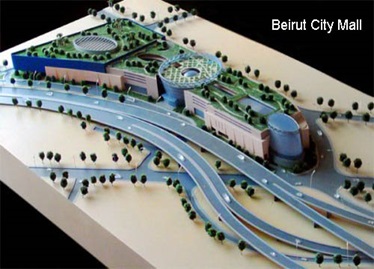
For this demand to materialize, you will need cash. There’s plenty of that in banks, to the tune of $140 billion, with no way for it to exit into the pockets of consumers except in the form of housing loans. In 2010 alone, more than $10 million were loaned combined between construction and housing. The neat trick is that whereas in the past only those with a bracket income of $1000-$3000 were targeted for loans, home lending in 2012 will aim at all income categories, from those making $500/month to those making $1 million. This will open up more opportunities across the board. Low income families will be able to purchase affordable housing, the middle brackets more decent accommodations and the rich their dream homes. Yes the rich Lebanese, expats or Arab nationals will have a much bigger inventory of vacant lots in the capital Beirut and elsewhere to choose from, compared to recent years, and they would want to gear their existing cash towards revenue-generating investments and opt for safe collateral-based long-term home borrowing.
However the real stirring news will come from a revolutionary approach undertaken by Small and Medium Size Enterprises (SMEs) in the real estate & construction business. In 2012, SMEs will be building 70-90 m2 apartments mimicking the trends we see in Paris, Switzerland and other European countries, in a crucial development that will breathe life into the sector. We are talking about companies whose capital is in the range of $500,000 who will begin investing 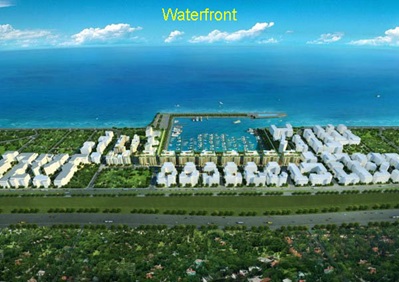 heavily into promotional pre-sale advertising in an all out effort aimed at changing attitudes and perceptions. We expect 2012, 2013, 2014 and 2015 to be a time for the Lebanese to be living in smaller apartments, decent neighborhoods and enjoying full amenities, should they be armed with proper incentives and rational building regulations. Not only is there no shame in this but also the mentality of the Lebanese having to own a house in both the city and the mountains to maintain a certain prestige should become a thing of the past.
heavily into promotional pre-sale advertising in an all out effort aimed at changing attitudes and perceptions. We expect 2012, 2013, 2014 and 2015 to be a time for the Lebanese to be living in smaller apartments, decent neighborhoods and enjoying full amenities, should they be armed with proper incentives and rational building regulations. Not only is there no shame in this but also the mentality of the Lebanese having to own a house in both the city and the mountains to maintain a certain prestige should become a thing of the past.
The good news doesn’t stop here. Cranking the wheels of construction momentum forward are the materials themselves. Today, we have much cheaper construction material born from the fact that competition is increasing, the Euro weakening, and the Chinese industry strengthening day after day, offering comparably matching high standards at reduced prices. An example of this is a block of marble that you would normally have bought from Italy for $80-90/m2, and which can now be purchased for $15-20/m2. Malls, hospitality outlets and hospitals are already reaping the rewards of this. Alone, new mall developments in Lebanon by Carefour, Giant, Spinney’s and others are consuming almost 25% of the construction material trade in the country.
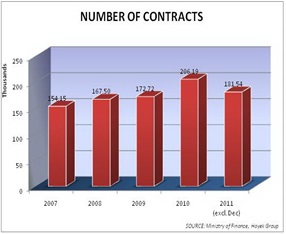
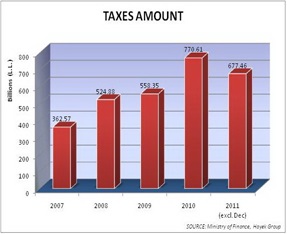
As for those who are of the opinion that property prices have crested are in for a reality check, though prices will only increase in certain strategic locations. Real Estate investors looking to buy and sell at a profit are advised to keep their distance from areas like Jbeil, Kesrouan, Adma, Ghazir, Broumanna, Beit Mery, Mansourieh, Bchamoun, and similar coast overlooking belts as these locations will not resell at high profit margins and are forcing land owners there to build to have any chance at recouping their initial purchase at a profit. Those looking to make an investment in real estate need to go beyond these areas. There are unbelievable opportunities for properties in the North like Dinnieh and Qobbeyyat in Akkar where snow is abundant paving
the way for very exciting investments. We never thought that prices in coastal Akkar, will reach $400-500/m2, when there is no infrastructure, services, supermarkets, hospitals, or even security. Syrian events there are causing owners to raise prices and in fact, everything built there is sold trouble-free and quickly. The South is also very promising. Some prices in Marjaayoun, Nabatieh, Bint Jbail and others have skyrocketed 3-5 times compared to only two years back. Problems in Africa are forcing businessmen there to buy in Lebanon’s south as a safety measure against insecurity and lack of stability in Africa. The trader is buying a warehouse; the industrialist is building a factory, and so on. We are seeing a shift from Africa to the South. Additionally, Mount Lebanon, like the Chouf and Aley have not witnessed any price adjustment to their real values mostly because these areas don’t have services, a heavy population, while on the other hand they enjoy great natural scenery and rock bottom prices.
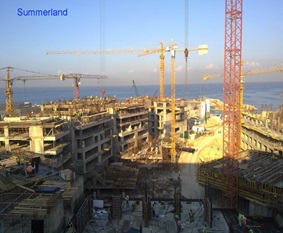 If you’re still not convinced, take a look at the inventory of mega projects being erected in Lebanon. We never thought we will ever have this magnitude and number of these types of projects taking place. In 2012, we have ongoing residential and commercial projects exceeding $10 billion in value of which Waterfront City, Kempenski’s Summerland, as well as huge developments in the Bekaa, the South and Beirut belt.
If you’re still not convinced, take a look at the inventory of mega projects being erected in Lebanon. We never thought we will ever have this magnitude and number of these types of projects taking place. In 2012, we have ongoing residential and commercial projects exceeding $10 billion in value of which Waterfront City, Kempenski’s Summerland, as well as huge developments in the Bekaa, the South and Beirut belt.
There is one good thing about 2011. If you were then seeking a building permit, you needn’t stand in line for hours like in 2010. This is about to change especially for SMEs. So if you are one, plan to wake up early and beat the permit rush.
Upcoming Newsletter
The real estate big players’ club! Want to be part of it? Just a slice of the pie? Also, Syria will refresh the Lebanese real estate sector, bringing an influx of investors and capital to Lebanon. Which side of the investment border will you be standing on?
Abdallah Hayek P.E
CEO
Hayek Group s.a.r.l
Beirut - Jan. 2012
Back To Newsletters